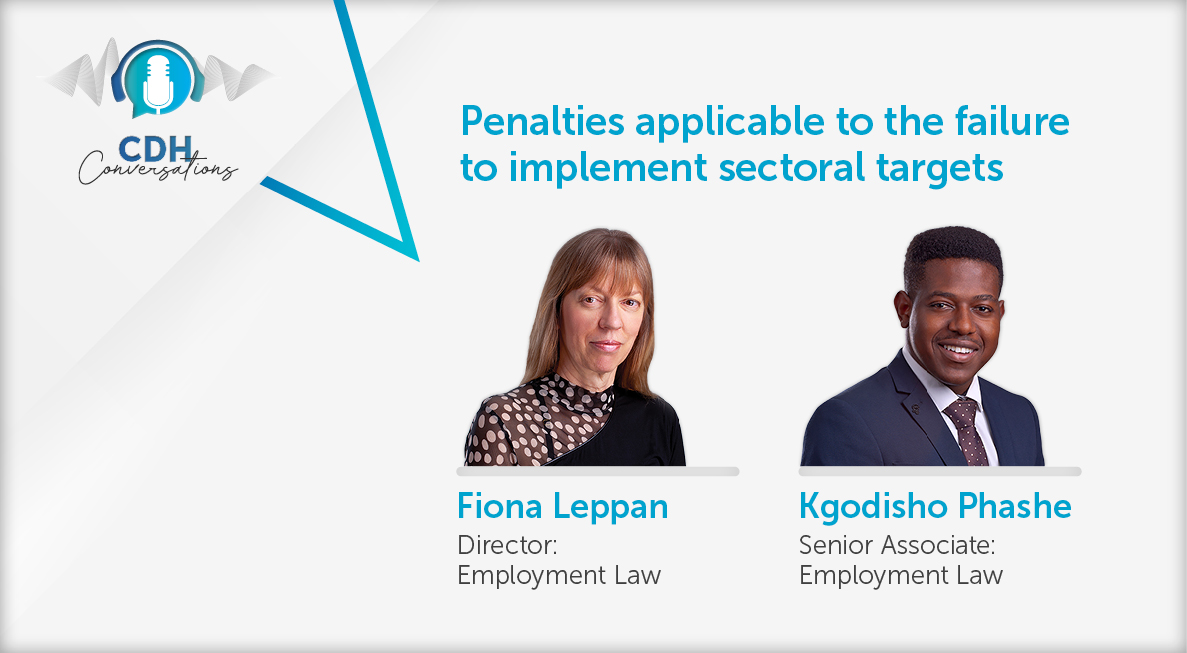New International Arbitration Forum opens Africa up to the International Community
In June of 2015, the signatories of the Beijing Consensus, including the Arbitration Foundation of Southern Africa (AFSA), recognised the necessity for a dispute resolution mechanism for commercial dealings between Africa and China. Echoing these sentiments, on 17 August 2015, a number of stakeholders including lawyers, members of other arbitration forums and the Secretary General of the China Law Society signed the Johannesburg Consensus, which served to supplement the Beijing Consensus and brought the China Africa Joint Arbitration Centre (CAJAC) into being.
The China-Africa International Arbitration Centre (CAIAC) is designed to resolve commercial disputes between China and African nations. The establishment of this Africa-China arbitration forum affirms the expansion of alternative dispute resolution in South Africa and the rest of the continent.
CAIAC reportedly began accepting cases in Johannesburg in October 2015. Although the initiative is still in its early stages, the forum will develop further and operate from Shanghai, China in the near future. The Arbitration Forum has not specified the nature of the cases it will accept, however it’s expected that disputes will include international investment agreements, securities exchange transactions, maritime trade and transport contracts, and other transcontinental commercial dealings that stem from bilateral investment treaties.
Arbitration is commonly defined as the procedure in which a dispute is submitted by agreement between the parties’, to one or more arbitrators who make a binding decision on the issue. In choosing arbitration, the parties opt for a private dispute resolution procedure as opposed to traditional courtroom process.
Following closely on CAIAC’s tail is another important development in the alternative dispute resolution space, this being the new International Arbitration Bill which is expected to be passed in parliament and enacted later in 2016. The new Act will facilitate and govern all the structures and components of the new International Arbitration Forum.
In recent years South Africa and China have aimed to increase their commercial and trading relations. The growing number of transactions concluded under bilateral investment treaties naturally warrants a neutral forum to manage the international legal anomalies that exist in transnational investment and commercial trade.
The establishment of CAIAC will see standardisation of the commercial and legal structures that will govern commercial and trade interactions between China and Africa. Largely accepted by the international community, structured arbitration forums such as CAIAC bring commercial and legal stability to previously indeterminate economic environments. This kind of security is fundamental for the African economic climate which is often viewed as inexact and perilous – traits which have often dissuaded international investors.
Arbitrations have become advantageous in the rapidly changing commercial environment. In the industry of commerce and trade, time is in fact money. An arbitration process is not always a cheaper alternative form of dispute resolution but, when time saving is factored in, it has been found to be more cost-effective.
Currently the waiting period for a trial date in the Gauteng High Courts is between seven months to over a year from the date that pleadings close. Arbitrations, however, do not have this time delay. Once pleadings have closed, the arbitrator and the parties can set the matter down for hearing on a convenient date. In most instances, the hearing date is fixed at the very beginning, during pre-arbitration discussion. This is due to the fact that arbitrations have minimal procedural requisites; therefore resolution is often reached earlier.
As a general point of departure, arbitration awards are enforceable and binding on all parties. However article 22 of the AFSA Rules affords unsuccessful parties with the right to appeal any arbitration award, provided that both parties to the arbitration agree in writing that any final or interim award of an arbitrator or arbitrators shall be subject to appeal. Nevertheless, parties to arbitrations often abide by the arbitration award if not, parties may elect to make the award an order of court.
The attraction towards arbitration stems from its relatively malleable procedural framework; where parties are often given the scope to determine the procedures and manner in which their arbitration will be conducted. This procedural flexibility accommodates the diverse needs of international enterprises and local businesses often resulting in expeditious resolution.
CAIAC will be comprised of seasoned and highly experienced regional and international arbitrators. By employing local and international experts who have an appreciation for the relevant law, African trade and commercial markets, and the contemporary challenges faced, CAIAC brings the advantage of a streamlined dispute resolution framework partnered with a high level of expertise.
Alternative dispute resolution forums such as arbitrations have significant shortcomings, nonetheless one cannot obviate its ability to bring a degree of legal certainty to existing complex transnational transactions. A novel legal establishment such as CAIAC brings vast opportunity for Africa to develop and learn in both areas of law and commercial trade. The establishment of CAIAC suggests Africa’s growing global prominence in trade and commercial industry. With this growing prominence come significant challenges but more importantly immeasurable opportunity.
The information and material published on this website is provided for general purposes only and does not constitute legal advice. We make every effort to ensure that the content is updated regularly and to offer the most current and accurate information. Please consult one of our lawyers on any specific legal problem or matter. We accept no responsibility for any loss or damage, whether direct or consequential, which may arise from reliance on the information contained in these pages. Please refer to our full terms and conditions. Copyright © 2025 Cliffe Dekker Hofmeyr. All rights reserved. For permission to reproduce an article or publication, please contact us cliffedekkerhofmeyr@cdhlegal.com.
Subscribe
We support our clients’ strategic and operational needs by offering innovative, integrated and high quality thought leadership. To stay up to date on the latest legal developments that may potentially impact your business, subscribe to our alerts, seminar and webinar invitations.
Subscribe



